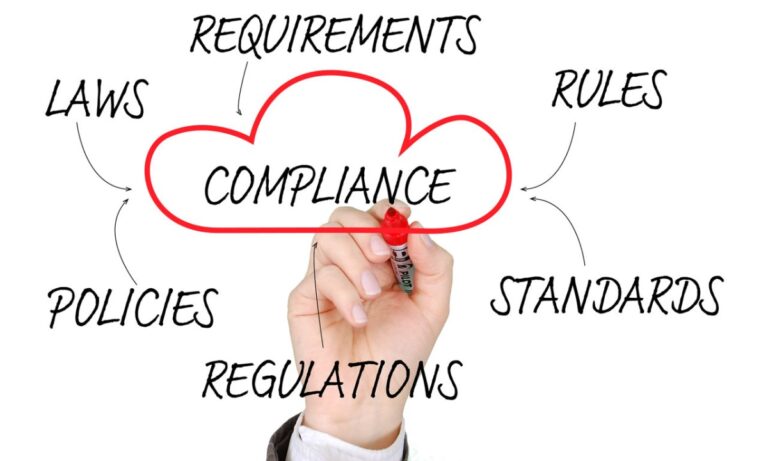
As we move to Industry 4.0, it is imperative that along with processes, technology will also go through transformation. Once such transformation is using cloud services for Software and Hardware. The following article talks broadly about considerations to ensure GXP compliance, the attached presentation gives a spectrum to be covered during creating such agreements.
In the gxp pharmaceutical and life sciences industry, maintaining compliance with regulatory requirements is paramount. Quality agreements, known as Good Practice (GXP) agreements, are instrumental in setting the framework for quality and compliance when using cloud service models like Software as a Service (SaaS) and Infrastructure as a Service (IaaS). This article will delve into the primary considerations and best practices for establishing quality agreements for SaaS, PaaS, and IaaS, often referred to as cloud computing IaaS PaaS SaaS.
- Understanding GXP Regulations
Before diving into the specifics of quality agreements or GXP agreements, it’s vital to comprehend the GxP definition. GXP is a collection of quality guidelines and regulations that apply to various sectors, including Good Manufacturing Practice (GMP), Good Laboratory Practice (GLP), and Good Clinical Practice (GCP). These regulations safeguard the safety, efficacy, and quality of pharmaceutical products.
- Identifying GXP Requirements for SaaS and IaaS
When leveraging SaaS, PaaS, and IaaS solutions, it’s essential to pinpoint the GXP requirements relevant to the specific use case. This process involves evaluating the system’s criticality, data integrity, security, and compliance with pertinent regulations such as 21 CFR Part 11 (electronic records and signatures) in the United States or EU Annex 11 in Europe.
- Selecting a Reliable Service Provider
Selecting a reliable SaaS provider or cloud provider is a key step in crafting quality agreements for GXP compliance. Consider factors such as the provider’s experience in the pharmaceutical industry, their compliance history, data security measures, and their readiness to collaborate to meet GXP requirements.
- Defining Roles and Responsibilities
For effective quality agreements, it’s crucial to clearly define the roles and responsibilities of both the cloud provider and the pharmaceutical company. This includes delineating responsibilities for system validation, change management, incident management, data backup, disaster recovery, and audit trails, often covered under service level agreements (SLA).

- Data Integrity and Security
Data integrity and security are of utmost importance when handling GXP data. Quality agreements should address data encryption, access controls, user authentication, data backup, and retention policies. It’s vital to ensure that the cloud service provider has appropriate security measures in place, such as firewalls, intrusion detection systems, and regular vulnerability assessments, to ensure data privacy and clarify data ownership.
- Validation and Compliance
Quality agreements should detail the validation process for SaaS, PaaS, and IaaS solutions. This includes defining the scope of validation, the validation plan, testing protocols, and the frequency of revalidation. The agreement should also address how the cloud service provider will demonstrate ongoing compliance with GXP regulations through audits, inspections, and continuous monitoring.
- Change Control and Incident Management
Change management and release management should be integral parts of the quality agreement, ensuring that any modifications to the SaaS or IaaS solution undergo thorough evaluation, testing, and documentation. These change control procedures need to be explicitly defined in the GXP agreement. Quality agreements should also establish incident management protocols to swiftly address and report any data breaches, system failures, or security incidents.
- Training and Documentation
Quality agreements should ensure that proper training and documentation are in place for GXP compliance. The GXP agreement should encompass training materials, user manuals, standard operating procedures (SOPs), and documentation of system configuration and changes. This is crucial to make sure that employees have the necessary knowledge and understanding of the software development process within the SaaS or IaaS solution to comply with GXP regulations.
Conclusion
Creating quality agreements for GXP pharmaceutical companies using SaaS and IaaS is vital for compliance with GXP regulations in the pharmaceutical and life sciences industry. By understanding GXP requirements, selecting a reliable SaaS provider, defining roles and responsibilities, addressing data privacy and security, establishing validation and compliance procedures, implementing change management protocols, and providing proper training and documentation, pharmaceutical companies can effectively leverage cloud service models like IaaS, PaaS and SaaS while maintaining regulatory compliance. These quality agreements should also include service level agreements (SLA) to ensure the desired level of service is maintained.


The proper vendor Audit before finalizing the vendor, technical expertise of auditor and periodic audits along with SLA maintenance, cloud services can be better used in Pharma sector
Thank you Vijay Reshi for the interesting feedback.
Restoration verification for SaaS ..if not required ..why not ? Please enlighten
Hi Abir,
In a Software as a Service (SaaS) model, the responsibility for software maintenance, including data backup and restoration, lies with the vendor. These vendors typically have robust procedures in place to ensure data is regularly backed up and can be restored quickly and accurately in the event of a data loss.
When we qualify a vendor, we assess and verify their ability to meet our requirements, which includes their data backup and restoration capabilities. If a vendor is properly qualified, we can trust that they have adequate procedures in place for data backup and restoration. This eliminates the need for us to perform our own restoration verification, as we can rely on the vendor’s qualifications and procedures.
The role of Quality is paramount in the pharmaceuticals industry.
SaaS and IaaS is very important for compliance with GXP regulations.
The above blog is very important in establishing Quality as a key differentiator for business growth within GxP Quality domain.
Thank you for sharing this, it’s absolutely amazing.
Loved every bit of it.
Looking forward to more of such blogs.
Hi Tanvi
Thank you for reading the blog, stay tuned to read more blogs by the pharma leaders